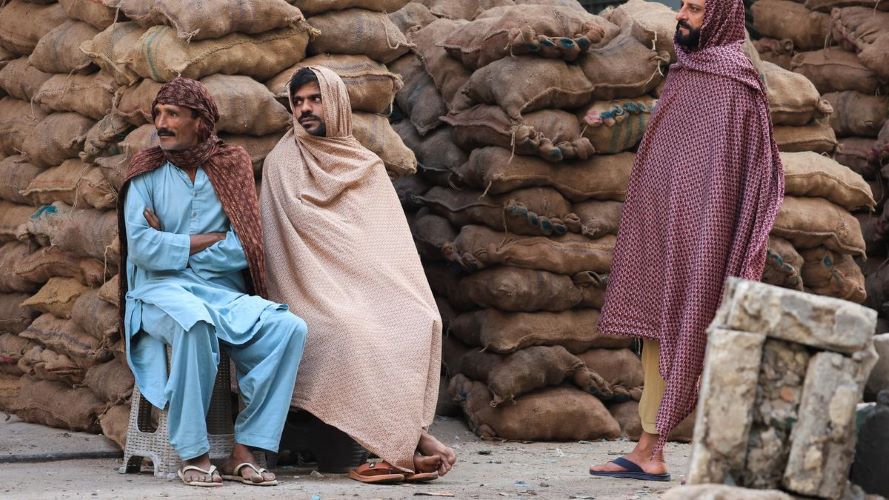World Bank to approve $20 billion programme for Pakistan

The World Bank is poised to approve a significant $20 billion financial package for Pakistan. This funding marks the beginning of a 10-year initiative aimed at safeguarding development projects from the country’s political instability. The program, titled “Pakistan Country Partnership Framework 2025-35,” will focus on addressing critical areas in Pakistan’s most neglected sectors. The goal is to foster long-term, stable development, as reported by The Express Tribune, a leading daily newspaper in Pakistan.
Key Focus Areas of the Framework
The Pakistan Country Partnership Framework will concentrate on six essential areas. These areas include reducing child stunting, combating learning poverty, enhancing climate resilience, decarbonizing the environment, expanding fiscal space, and boosting private investment to improve productivity. Each of these priorities has received broad support from various political factions in Pakistan. This consensus is crucial, as it increases the likelihood that these initiatives will remain stable throughout the 2025-2035 period, which is expected to encompass at least three general elections.
Reducing child stunting is particularly vital, as it directly impacts the health and development of the nation’s youth. Combating learning poverty addresses the urgent need for educational reform, ensuring that children receive quality education. Enhancing climate resilience and decarbonizing the environment are critical for sustainable development, especially in a country that faces significant environmental challenges. Expanding fiscal space will provide the government with more resources to invest in public services. Finally, boosting private investment is essential for improving productivity and driving economic growth. Together, these focus areas aim to create a more stable and prosperous future for Pakistan.
Approval from the World Bank
The World Bank’s board is scheduled to approve the framework on January 14, 2025. Following this approval, Martin Raiser, the World Bank’s vice president for South Asia, is expected to visit Islamabad. His visit will focus on discussing the implementation of this ambitious program. This initiative is viewed as a long-term solution to protect development projects from the unpredictable political landscape of Pakistan.
The framework’s approval is a significant step forward for Pakistan, as it aims to provide a stable financial foundation for development projects. The World Bank’s commitment to this initiative reflects its recognition of the challenges Pakistan faces and its willingness to support the country in overcoming them. The funding will not only help stabilize ongoing projects but also encourage new initiatives that can drive sustainable development.
Shielding Projects from Political Shifts
The World Bank’s assessment indicates that this strategy will help shield the program from Pakistan’s volatile political environment. Frequent changes in government often lead to shifts in priorities and requests, which can disrupt development projects. The official documents reveal that past transitions in government have resulted in the fragmentation of the World Bank portfolio and diluted impacts.
A key official involved in the framework’s development noted that Pakistan was chosen as the first country for this 10-year partnership strategy. This pioneering approach aims to create a more resilient framework for development, ensuring that projects can withstand political changes. The World Bank’s total indicative lending envelope for the fiscal years 2025 to 2035 will amount to approximately $20 billion. Of this, $14 billion will come from the International Development Association (IDA), while the remaining $6 billion is expected from the International Bank for Reconstruction and Development (IBRD). However, the availability of these loans will depend on various factors, including Pakistan’s performance under the Sustainable Development Finance Policy.
Shifting World Bank Strategy
This new lending initiative signifies a notable shift in the World Bank’s approach to development in Pakistan. Instead of focusing on smaller, short-term projects, the framework will prioritize larger, more impactful investments. The World Bank plans to phase out lending to ten less impactful sectors, such as transport, power transmission, telecoms, tertiary healthcare, and higher education. These sectors are considered less effective for long-term development.
The new strategy emphasizes larger projects, more frequent scale-ups, and expansions, while reducing reliance on pilot programs and one-off operations. The implementation of this 10-year framework will be guided by two-year rolling business plans, which will be agreed upon by both the World Bank and the Pakistani government. By concentrating on high-impact areas, the World Bank aims to help Pakistan tackle its most pressing socio-economic challenges effectively. This strategic shift reflects a commitment to fostering sustainable development and improving the quality of life for the people of Pakistan.
Observer Voice is the one stop site for National, International news, Sports, Editor’s Choice, Art/culture contents, Quotes and much more. We also cover historical contents. Historical contents includes World History, Indian History, and what happened today. The website also covers Entertainment across the India and World.
Follow Us on Twitter, Instagram, Facebook, & LinkedIn

